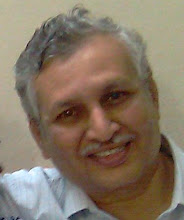A dictionary definition of an entrepreneur is not very flattering, but shorn of the hype it is probably simply factual! According to Oxford, an entrepreneur is a person who makes money by starting new businesses.
In common business parlance, however, an entrepreneur is one who is not an employee and is more than a manager or a leader. Often, an entrepreneur starts with nothing but his or her idea or plan, hard-earned savings and of course passion to create a business.
There are managers and leaders who are routinely starting new businesses within companies, new companies within industries and new industries within economies. There are probably several thousands of them. What distinguishes an entrepreneur from such managers and leaders?
An analogy would probably explain well. An entrepreneur is like a mountaineer who relies on his guts, energy and passion as well as a few basic tools to reach a peak. A manager or a leader is perhaps one who analyses the path and weather and deploys a helicopter to get to the peak. There are applicable challenges and opportunities as well as costs and benefits in both the approaches.
Not every entrepreneur is probably the same. There are entrepreneurs like Henry Ford, Konosuke Matsushita, Akio Morita, Bill Gates, Steve Jobs, Larry Page and Sergey Brin who rewrote industrial history by creating new industries around novel technologies and products commercialized for the first time. There are also follow-on entrepreneurs who expanded and reshaped industries or competed with the pioneers, like William Durant did with General Motors. There are entrepreneurs who created industrial history in a hostile or fledgling environment like Jamshedji Tata or Larsen and Toubro. Entrepreneurs like Dhirubhai Ambani applied an inventive and aggressive mind to redefine what entrepreneurial initiative could deliver for business. Narayana Murthy and Infosys co-founders demonstrated how with little money and abundant skills one could create companies around global opportunities. And so does Raghavendra Rao of Orchid bring out his own story of entrepreneurial creativity, ardor and passion.
Is an entrepreneur for life? Probably not. Somewhere along the path of growth most entrepreneurs become all too adventurous, all too confident or simply all too obsolete. Microsoft, for example, failed to see the Web revolution. Sony failed to see the flat panel revolution. Yet these firms are mercifully surviving and growing because the entrepreneurs in good time created institutions with core strengths and which could reinvent themselves in the face of adversities.
An entrepreneur who ceases to be a good manager or a leader (or fails to recognize the need for good management and leadership) often fails to transform his company into a sustainable growth engine.
Should one have limits for claiming oneself to be an entrepreneur? Probably yes. The moment an entrepreneurial venture achieves a profitable full year of operations, logically the main defining elements of an entrepreneur (no money, no organization but only idea and passion) would have disappeared. The sooner an entrepreneur realizes that and transforms himself into a role model of balanced leadership, the better will it be for him and his company. This is because if he is a true entrepreneur, he will look for new challenges to undertake another resource-strapped, boundary-less quest. It is better for his company, because such a transformation substitutes the singular entrepreneurial zeal of the founder with the diffusion of entrepreneurial management across the company.
Is working as an entrepreneur exciting? Surely, because it is the attitude and personality that drives an entrepreneur. He or she typically likes to define his or her boundaries and rules of game. Yet, as mentioned above an entrepreneur needs also to know when his individual competence and satisfaction have to be subjugated to organizational capabilities and excitement.
Is it exciting to work with entrepreneurs? Yes, because they tend to be inspirational and energetic individuals fizzing with ideas and optimism. They believe in individuals and let people experiment. Yet, in their strengths lie their own weaknesses. They fail often in drawing the line between being truly inspirational and excessively rabble-rousing. They have too many ideas to get excited about, and in trying to implement all of them they tend to cross prudential norms. Their relentless optimism sometimes strays into dangerous territory which is characterized by foolish risk-taking, a denial of reality, and persistence beyond common sense. Many successful entrepreneurs fail to delegate. Some entrepreneurs who get surrounded by incompetent individuals remind one of lessons in history where successful emperors failed to retain their successes because when they overreached they had no one to bring them to their senses.
All things said, entrepreneurs are the inventors, the makers and the builders. The economies need them for the momentum of growth. The clever and sagacious ones who translate their singular entrepreneurial competence into organizational capability and who surround themselves with able supporters to balance out their imperfections will make a lasting mark on the history.
Posted by Dr CB Rao on December 30, 2008

No comments:
Post a Comment